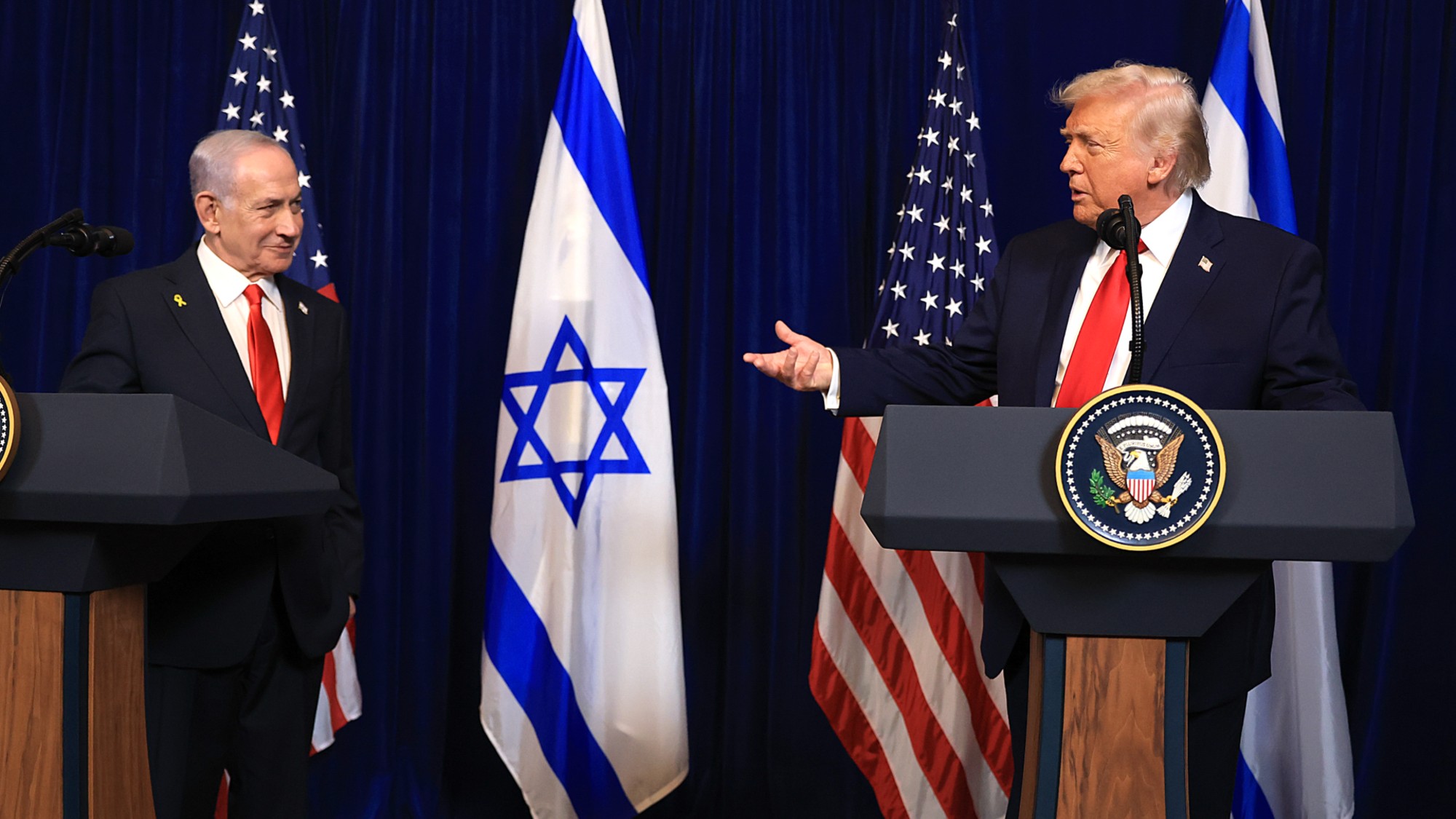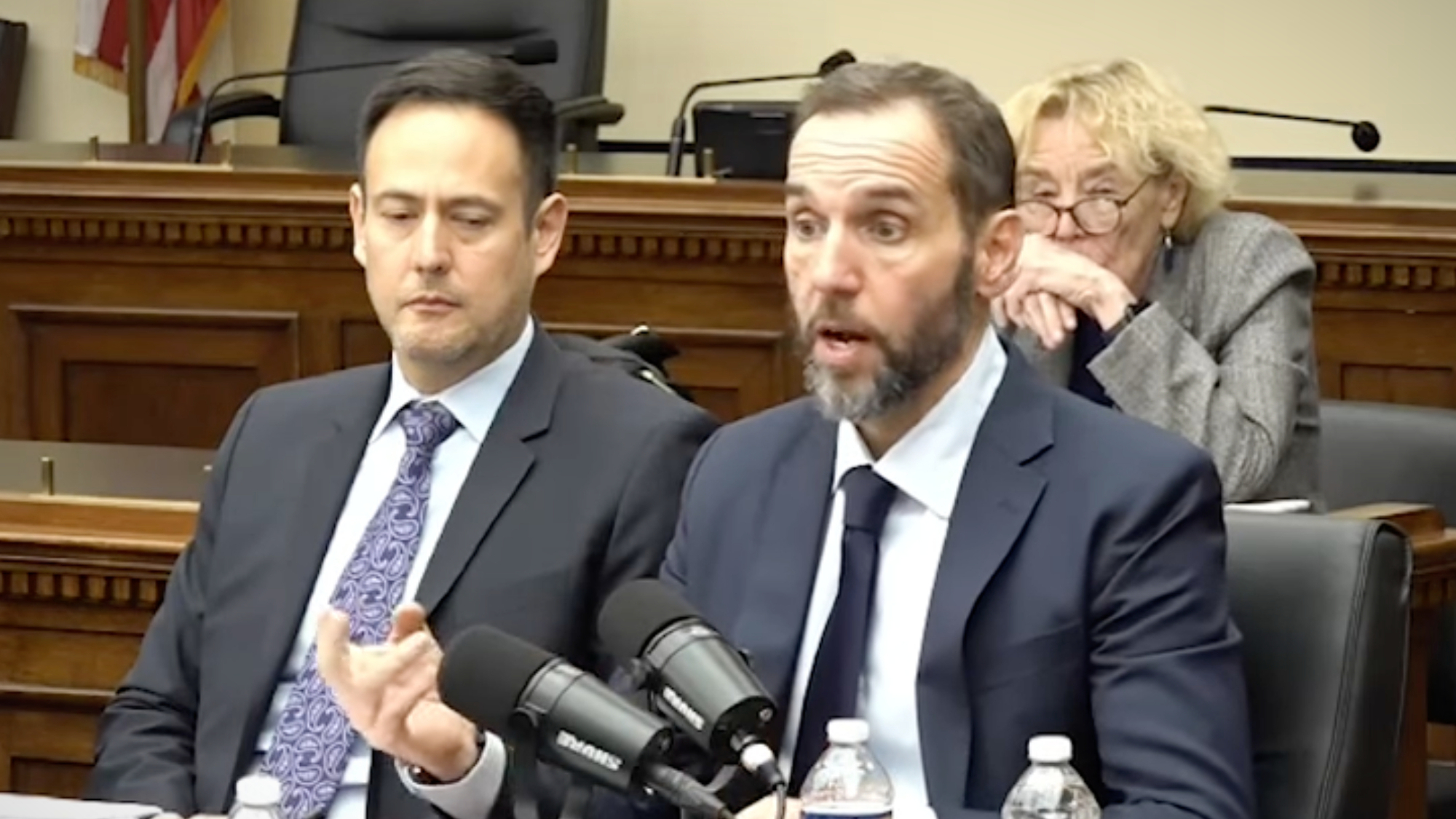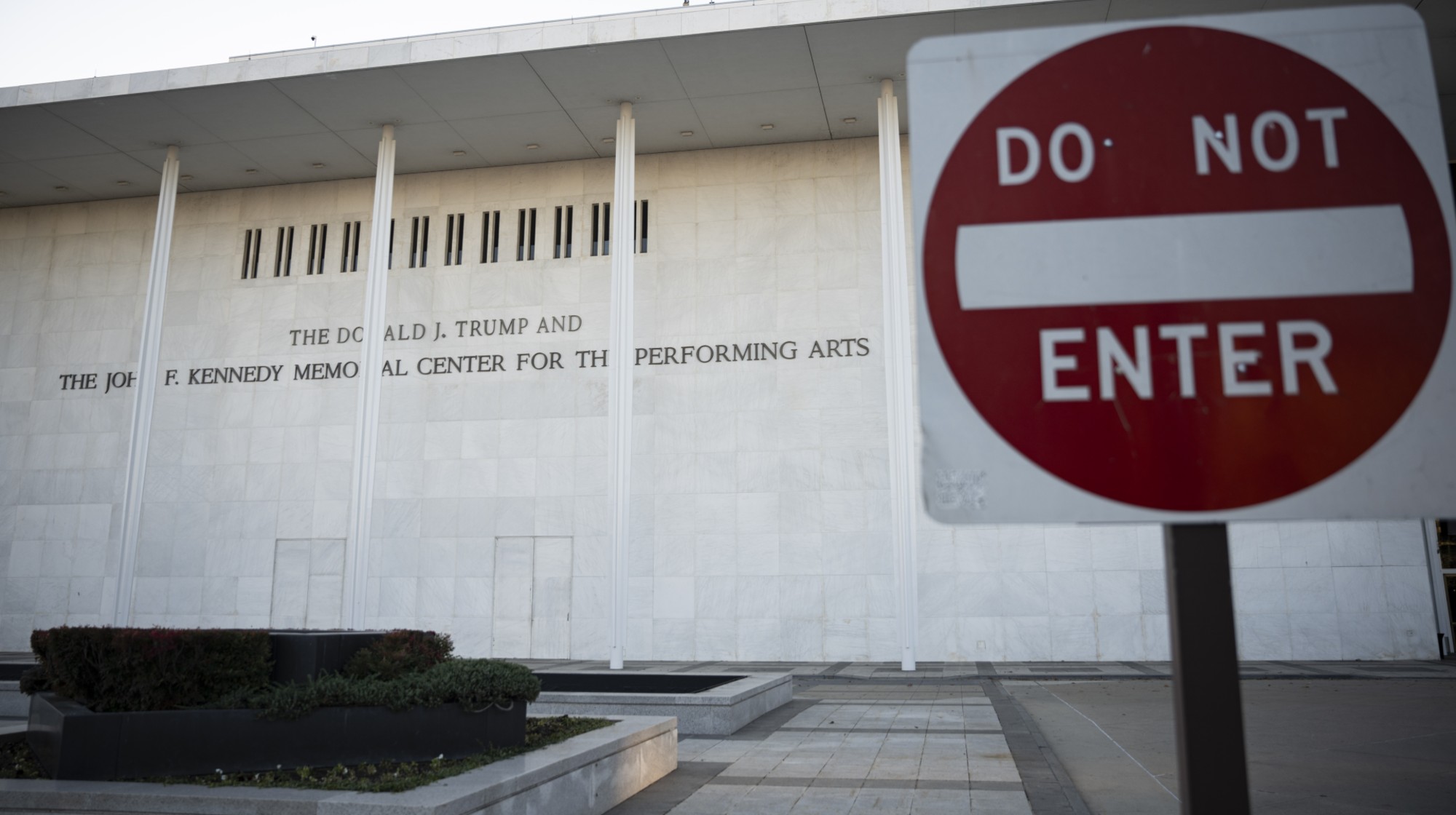How will Keir Starmer pay for greater defence spending?
Funding for courts, prisons, local government and the environment could all be at risk

Keir Starmer has attempted to curry favour with President Trump ahead of a trip to Washington next week by promising to "spend more on defence". But where he will find the money to do that is far from certain.
The prime minister has said the government will set out a "pathway" to increase defence spending from 2.3% of GDP to 2.5% in the wake of an emergency meeting with European leaders on Monday, "but has refused to say when that target will be achieved", said the Financial Times.
His problem, shared by many of his fellow European leaders who attended the Paris meeting on Ukraine, is that "public finances are already strained to breaking point".
The Week
Escape your echo chamber. Get the facts behind the news, plus analysis from multiple perspectives.

Sign up for The Week's Free Newsletters
From our morning news briefing to a weekly Good News Newsletter, get the best of The Week delivered directly to your inbox.
From our morning news briefing to a weekly Good News Newsletter, get the best of The Week delivered directly to your inbox.
What did the commentators say?
"You're probably used to politicians telling you we're living in the most dangerous times for decades," said the BBC's Laura Kuenssberg in November. "But who's going to pay for our protection?" With Trump "a lot less willing" to bolster European defence capability than his predecessor Joe Biden, it puts that question "right to the top of the list".
The Labour Party may be "instinctively uncomfortable" with a second Trump administration, but "there is some sympathy with his attitude towards European defence funding". One insider pointed out that after Trump's first term, the number of Nato countries that hit the target of spending at least 2% of their GDP on defence rose from six countries in 2021 to 23 today.
The sums necessary for raising defence spending to 2.5% – or to 3% as some defence experts are urging – are enormous. The government has made commitments that it won't cut areas such as health, schools and aid, leaving "unprotected" departments – covering areas such as courts, prisons, local government, the environment, culture and policing – at risk. These departments have already "borne the brunt" of austerity and are facing further cuts thanks to Rachel Reeves' budget, Dr Hannah White, director and CEO of the Institute for Government, told BBC Radio 4's "Today".
The government will need to find £9 billion of extra cuts to reach its 2.5% target, equivalent to "the whole of the budget of DEFRA", said White. To hit 3% would mean cutting "the equivalent of the entire Ministry of Justice and Department for Business and Trade, which would be £17 billion worth of cuts to day-to-day spending".
A free daily email with the biggest news stories of the day – and the best features from TheWeek.com
Getting to 3% would be a "monumentally" difficult task, one the chancellor will tell the PM is "impossible". Yet Poland, the Baltic states and the US already do it, "and they all have growing economies", said William Hague in The Times. In Britain, it would need "reforms of sickness benefits and NHS productivity to succeed" and the "runaway train of pension spending – the triple lock – would need brakes".
But a "clear policy" from London would increase pressure on the rest of Europe to do the same, thereby answering Trump's "legitimate point" over defence spending, contributing to Ukraine's defence and helping to prevent another war.
What next?
Britain "is in the same fiscal bind as much of Europe", yet the EU has agreed to temporarily ease its fiscal rules to allow countries to spend more on defence, said Sky News. Britain may soon have to make a similar decision, with a rise to 2.5%, or even 3%, unlikely to silence all the critics of Britain's defence spending.
Yet less than four months on from the Budget, it is not a decision Britain can "take lightly" without the risk of damaging the country's credibility within the financial markets.
Sorcha Bradley is a writer at The Week and a regular on “The Week Unwrapped” podcast. She worked at The Week magazine for a year and a half before taking up her current role with the digital team, where she mostly covers UK current affairs and politics. Before joining The Week, Sorcha worked at slow-news start-up Tortoise Media. She has also written for Sky News, The Sunday Times, the London Evening Standard and Grazia magazine, among other publications. She has a master’s in newspaper journalism from City, University of London, where she specialised in political journalism.
-
 Political cartoons for January 3
Political cartoons for January 3Cartoons Saturday's political cartoons include citizen journalists, self-reflective AI, and Donald Trump's transparency
-
 Into the Woods: a ‘hypnotic’ production
Into the Woods: a ‘hypnotic’ productionThe Week Recommends Jordan Fein’s revival of the much-loved Stephen Sondheim musical is ‘sharp, propulsive and often very funny’
-
 ‘Let 2026 be a year of reckoning’
‘Let 2026 be a year of reckoning’Instant Opinion Opinion, comment and editorials of the day
-
 ‘Let 2026 be a year of reckoning’
‘Let 2026 be a year of reckoning’Instant Opinion Opinion, comment and editorials of the day
-
 Jack Smith: Trump ‘caused’ Jan. 6 riot
Jack Smith: Trump ‘caused’ Jan. 6 riotSpeed Read
-
 Wave of cancellations prompts Kennedy Center turmoil
Wave of cancellations prompts Kennedy Center turmoilIN THE SPOTLIGHT Accusations and allegations fly as artists begin backing off their regularly scheduled appearances
-
 Trump considers giving Ukraine a security guarantee
Trump considers giving Ukraine a security guaranteeTalking Points Zelenskyy says it is a requirement for peace. Will Putin go along?
-
 Why is Trump’s alleged strike on Venezuela shrouded in so much secrecy?
Why is Trump’s alleged strike on Venezuela shrouded in so much secrecy?TODAY'S BIG QUESTION Trump’s comments have raised more questions than answers about what his administration is doing in the Southern Hemisphere
-
 Vance’s ‘next move will reveal whether the conservative movement can move past Trump’
Vance’s ‘next move will reveal whether the conservative movement can move past Trump’Instant Opinion Opinion, comment and editorials of the day
-
 What have Trump’s Mar-a-Lago summits achieved?
What have Trump’s Mar-a-Lago summits achieved?Today’s big question Zelenskyy and Netanyahu meet the president in his Palm Beach ‘Winter White House’
-
 Alaa Abd el-Fattah: should Egyptian dissident be stripped of UK citizenship?
Alaa Abd el-Fattah: should Egyptian dissident be stripped of UK citizenship?Today's Big Question Resurfaced social media posts appear to show the democracy activist calling for the killing of Zionists and police